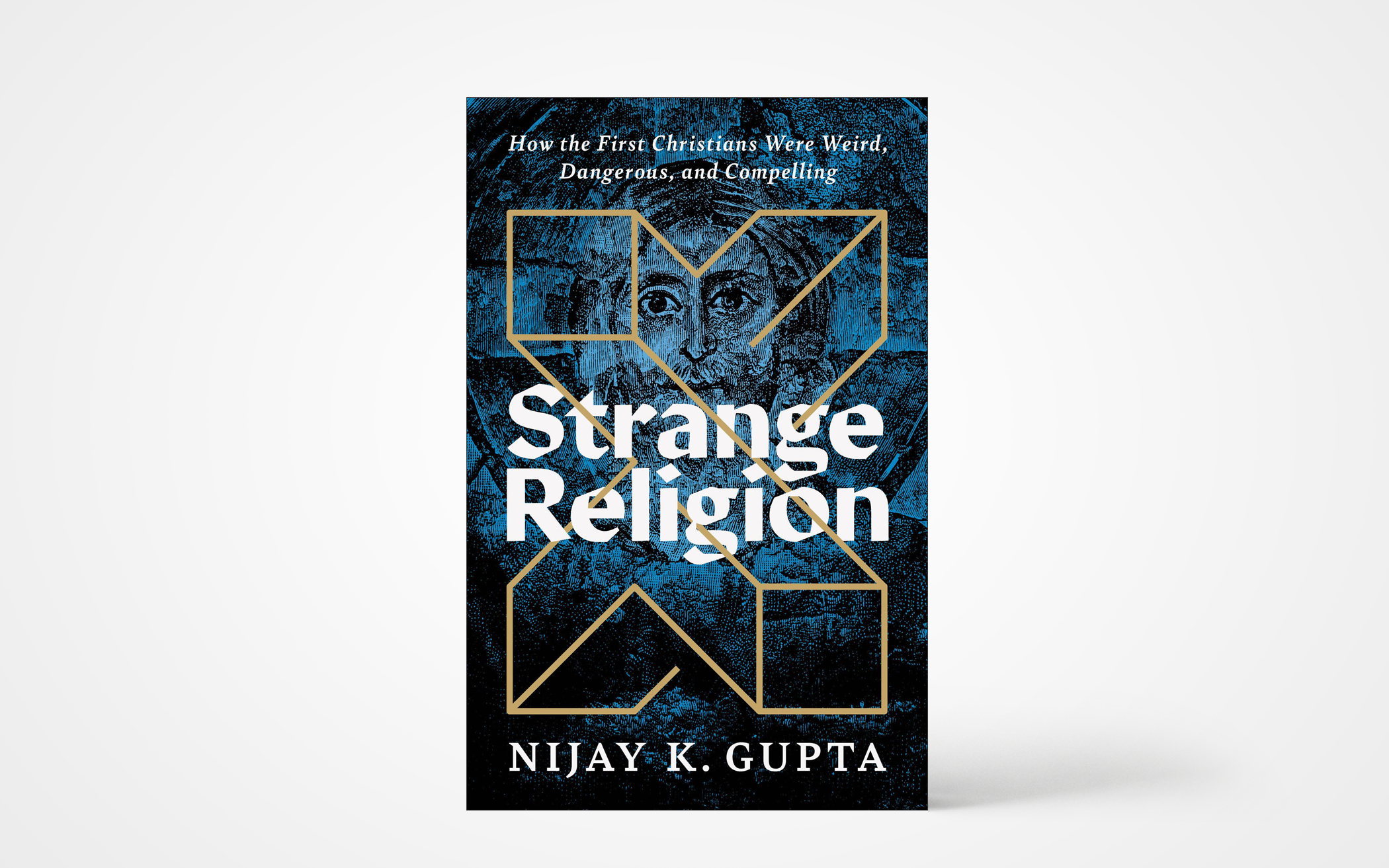Today’s Christianity in the Western world is so mainstream that we in North America sometimes struggle with Christian Nationalism, or blending patriotism with faith in God. According to New Testament scholar Nijay Gupta, however, the first Christians would have had the opposite problem: they were undeniably, radically weird.
In his winsome, fascinating book, Gupta makes a historical case that the early Christians were not just oddballs or a little bit fringe; they were thought of as dangerous to civilized Roman society.
For one, religion, according to the Romans, was not about spiritual growth or formation or even beliefs; it was about keeping “peace with the gods,” Gupta wrote.
“In some ways, it reminds me of the modern-day mafia. They will ‘take care of’ your neighborhood business, protect it, maybe even grant a loan, but in exchange you must pay them respect, pay taxes, and do as they say, or there are severe consequences (if you know what I mean).”
Christians did not worship cult statues, which to the Romans meant they were “godless and a threat to Roman order.”
The first believers were bizarre, for “venerating a criminal (Jesus), prescribing Jewish beliefs for gentiles, and ‘worshiping' with no statues, no material sacrifices, no official priests, and no temples.” And their “personal relationship” with God seemed “overfamiliar” with the deities and could very well make the gods mad enough to take revenge and punish all of them, Christians and non-Christians alike.
The way Christians met together was also off-putting to their neighbors. Why, Romans thought with wariness, did Christians meet in houses, in secret, instead of at public temples? And why were they upsetting all semblance of normative order by erasing the social hierarchy, which existed, they believed, to keep the peace?
In ancient Rome, “social life was set up as a pyramid of power,” Gupta writes. “Generally speaking, men were more important than women, older more important than younger, pure blood more important than half-siblings, let alone slaves. Slaves were counted in a household but did not count as people. They had no family name, no honor, no inheritance, no future; basically, they were living forms of property, much like cattle. But Christian writers like Paul ascribed dignity and honor to all within the household of faith, including slaves.”
The Christian ethics of equality seemed to beg for rebellion and anarchy, which made believers seem even more subversive and freaky.
As Gupta highlights the many ways in which Christians stood out as unnatural, mysterious, secretive, and threatening, he also underscores the upside-down kingdom of God we are still called to live into. As believers in the 21st century, we can learn from our first-century forerunners to be faithful, believe the unbelievable, and tear down the hierarchical structures that still exist. Like Jesus, who modeled a “subversive sociology,” we can be inspired by the first Christians to love one another as Christ loved us.
Yes, the church in antiquity was weird and dangerous, or so people thought, but they were also so compelling, so wonderfully different in the way they lived their lives, that those around them took notice. Sparks flew. Lives changed. As Strange Religion uncovers our founding fathers and mothers in their countercultural practices, it helps us gain a new vision for living a winsome, radical, and loving life in our modern context. (Brazos Press)
About the Author
Lorilee Craker, a native of Winnipeg, Man., lives in Grand Rapids, Mich. The author of 16 books, she is the Mixed Media editor of The Banner. Her latest book is called Eat Like a Heroine: Nourish and Flourish With Bookish Stars From Anne of Green Gables to Zora Neale Hurston.

